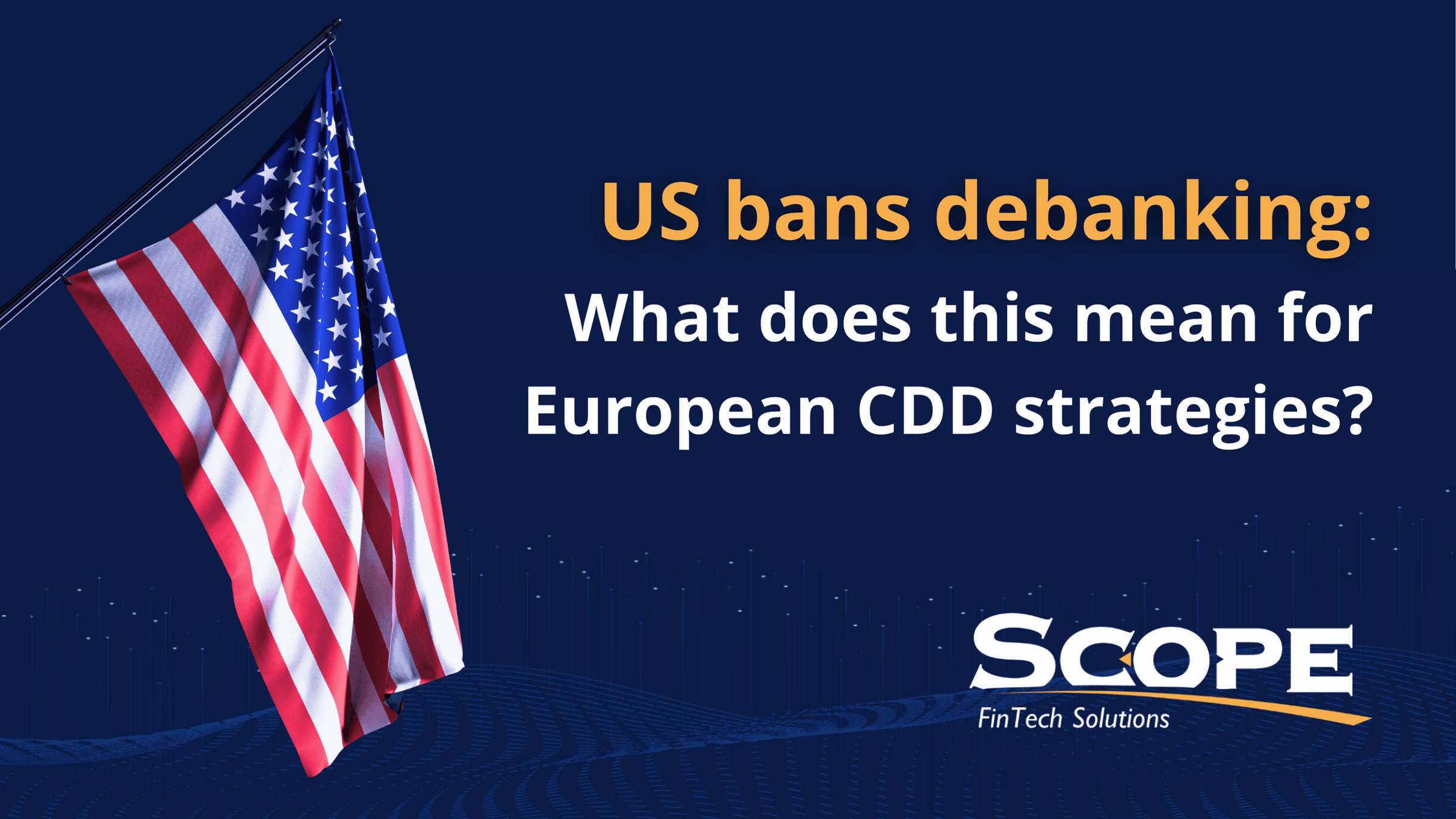On augustus 2025 heeft de Amerikaanse president een ingrijpende Executive Order ondertekend die banken verbiedt om klanten te weigeren op basis van reputatierisico, politieke voorkeur of religieuze overtuiging. Deze maatregel, gericht op het beëindigen van zogeheten debanking, puts and end to years of policy whereby companies and individuals were excluded from financial services without objective risk grounds. The question is: what does this change mean for Europe, and specifically for Dutch institutions that work with CDD and AML guidelines?
What does the US ban entail?
The Executive Order “Guaranteeing Fair Banking for All Americans” requires federal regulators to remove all references to reputational risk from their supervisory framework. Banks may no longer refuse customers based on image, political preference, or sector, as long as there is no demonstrable financial risk. The Office of the Comptroller of the Currency (OCC) immediately implemented this policy and announced that reputational risk will no longer play a role in licensing, supervision, or Community Reinvestment Act (CRA) assessments, which require banks to extend credit to all parts of the communities in which they operate.
Reputational risk factor still active in Europe
In Europe, reputational risk is still a recognized factor in customer acceptance and risk assessment. Especially in sector such as crypto, real estate, and non-profit, a customer's image is regularly taken into account. The European Banking Authority (EBA) has recently published guidelines to combat unjustified risk mitigation, with an emphasis on individual risk assessment and access to basic banking services. Nevertheless, reputation remains an implicit factor in many AML policies.
Potential impact on Dutch CDD strategies
Although the US and EU have different supervisory structures, this change in US policy could indirectly affect Dutch institutions:
- Shift in standards: The Us emphasis on objective, risk-based customer assessment could put pressure on European supervisors to reconsider reputational risk.
- Increasing transparency requirements: The EU is working on harmonization through AMLA and AMLR, which require customer data to be updated periodically. This may conflict with a more liberal approach to customer acceptance.
- International compliance: Multinationals and FinTechs often operate across borders. A difference in debanking policy between the US and the EU could lead to compliance friction and a review of internal CDD guidelines.
What can gatekeepers do?
For compliance officers and CDD specialists, not is the time to review their policies. Ask the question:
- Is our customer acceptance based on objective risk factors?
- Can we substantiate our decision to regulators and customers?
SCOPE FinTech Solutions' products enable organizations to base customer research on verifiable data, up-to-date risk profiles, and Dutch compliance guidelines.

